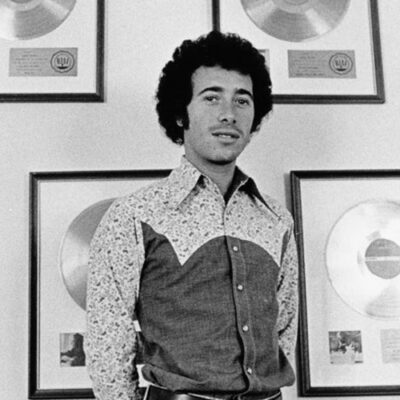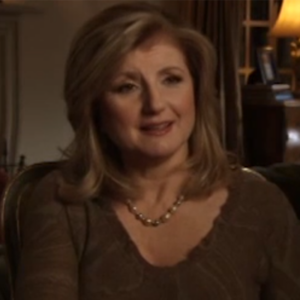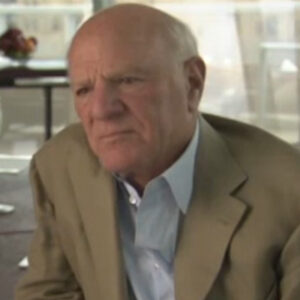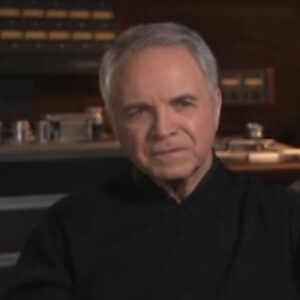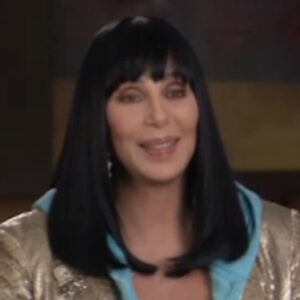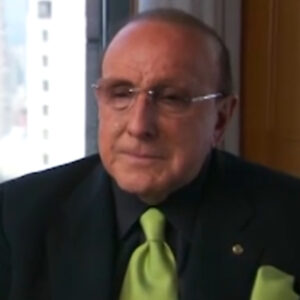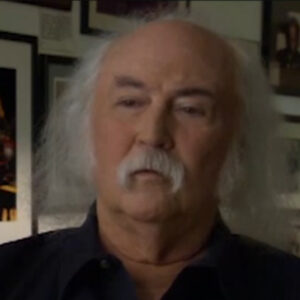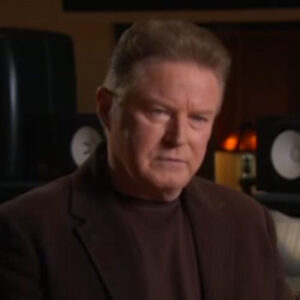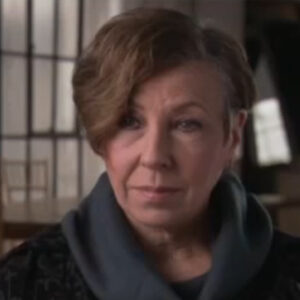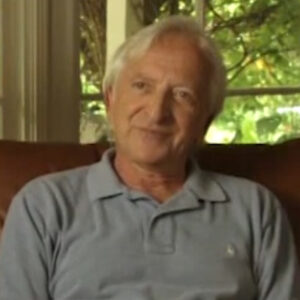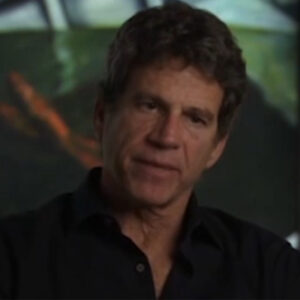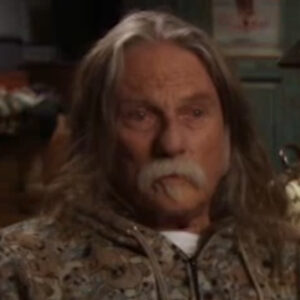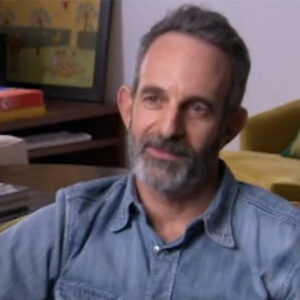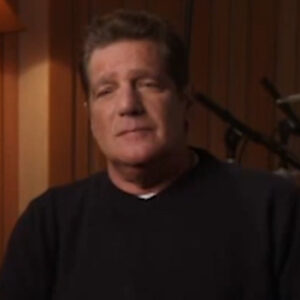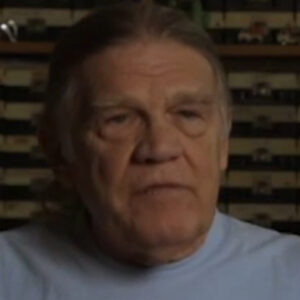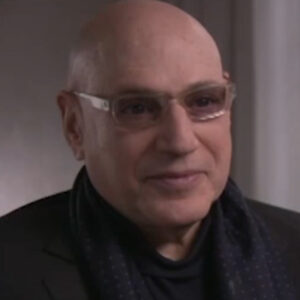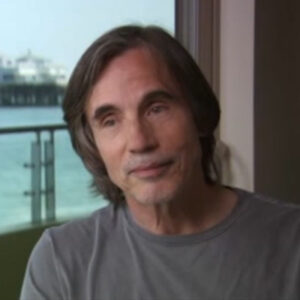Speaker Okay, David and I go back a long way. I might be playing one of the least consequential parts in David’s life, but I’ll try to make it interesting if I can. We grew up probably a couple of miles from one another. He was a he went to New Tricot. We called it Utrecht, and I went to Tilden. We were competing football. We were all in the PSA.
Speaker And his was, I think, Bay Ridge Bensonhurst area. I was in Flatbush. And for some reason in those days, we both had this strange idea of show business somewhere in the back of our minds. But that’s not what you do if you’re a nice Jewish boy from Brooklyn. You make your parents happy and you go off to college when you graduate high school. I went off to Syracuse. He went off, I think, to University of Texas. And the interesting thing is, after one year, we both realized we didn’t want to do what we were trying to make our parents happy. And doing college was not really the answer. I wanted to study acting. When I told that to my father, he said, What makes you think you’re that good looking? So I had a real support back there. David’s decision took him. I don’t know what his mom said. I’m sure it wasn’t good. She worked hard. She had two jobs trying to send him off to college, but he knew he had another calling of some sort. It led to both of us eventually ending up back in New York right around the same time. I’m about two or three years older than David, but we I had spent a few more years studying, acting before I realized I wasn’t going to make it. David did whatever he did until he realized he wasn’t going to make it at that. And we both started our lives. He walked into William Morris and he started in the mailroom. He had to lie. This is well documented in my telling tale out of school. He heard that you had to be a college graduate. So he lied, said graduate instead of one year and got the job at sixty five bucks a week or fifty five a week in those days. So it’s not too terrible. And he watched to make sure that if they ever checked up on him, that he would intercept the letter that says no. David Griffin graduated from this college the same time I walk in off the street and I meet Ted Ashley’s brother. My name Allah Ashley, who did the hiring. And I heard also you have to be a college graduate. So I had been this one year in Syracuse. So I said four years at Syracuse. And to my dismay, Mr. Ashley says, I have someone I want to introduce you to. We’re not looking for anyone in the mailroom. We’re looking for somebody to be an assistant. I was going to bypass a vital step, possibly if I pass this next test to meet a man named Jerry later who was running the agency was a young guy about thirty five. I was probably twenty five at the time. And I walked into his office and Mr. Ashley says to him, I bring you a Lanzmann, which I’m Jewish, but I don’t know much Yiddish terms. I assumed it was a family member of some sort. And what it meant to them was that I had graduate at Syracuse and so did Jerry. And Jerry gets up from his desk and he says, Hey, Marshall Street. Now, I hadn’t been at Syracuse in seven years. So now I said, oh, the D.H, which was so well, coffee shop on Marshall Street. He said to come so large, which was a drinking bar. And I said, the orange room and the drinking bar. He asked me one more question. I couldn’t remember anything else. He said, You’re hired. And I got this job at sixty five dollars a week to be an assistant in the television packaging department.
Speaker What what would have been what was what was the law, what was the.
Speaker It was the way you did it. That’s right. I’m like, OK, OK. The reason why we all wanted to be there were two ways of getting into the business. Part of show business was either to go to CBS or NBC and become a page which paid also about fifty five. Sixty five. And you earned your stripes that way and worked your way up, maybe made a relationship with someone or had a show. That was one path I contemplated that. I think David even did it. I the other one would be the mailroom of the large agencies and basically it was their little hoax on the wall. They got us working for fifty five dollars a week for twelve hours and we were auditioning. And how do you audition? You’re delivering mail and you’re hoping to flirt with one of the important secretaries. Maybe she’ll like you. Maybe she’ll say a nice thing to her boss. Somehow you kind of meet them on their way out the door and say, hi. I hope you like the way I’m delivering it, may or whatever we’re thinking. Oh, that’s that was the way up the ladder. And it still is. Which is amazing. Was it very competitive?
Speaker It was very competitive. But like I said, I avoided it. I am one of those blessed because they were looking for somebody in the television packaging department and they didn’t like any other guy that got the my boss man and Jay Sanford didn’t like any of the young men in the mail room. And he said, finally somebody else.
Speaker And then I walk in to Jerry Lighter’s office as a linesman. So he takes me was a Friday. Somebody could get that 30 days. Yeah, please.
Speaker Her. OK, you can hang up now. I’m sorry. We’ll be opening our. OK, so.
Speaker With Slivered, okay, you should take a reservation next to everyone drank too much. Stand by for one sec. Let’s just go back for a second and just talk about let’s just talk about Brooklyn, okay? Just just set the scene for 1950s Brooklyn. Okay. I’m going on there. What was it like to be a kid growing up?
Speaker Growing up in Brooklyn is a vital part, I think, of all of our lives. You see, a lot of comedians have come out of Brooklyn in that period of time. It was a very competitive place. It was ghetto. I must admit. It was a Jewish ghetto. I didn’t know what was considered a gentile until I got into show business years later because the college I went to, Syracuse, was also, again, a lot of Jewish kids from either Brooklyn were quote unquote, the five towns. But Brooklyn was a place where you grew up on a street. There were apartment buildings mostly, and then there would be the rich kids had homes, few of those or two family homes of four family homes. But at any rate, wherever you lived, there were 20 kids who lived on your block. It wasn’t called the street was your block. And sports was what defined us, wasn’t how good looking you were, wasn’t how big tall a fat or thin it was two things. It was sports and competitive humor. It was cold in those days. Ranking out.
Speaker It was. Now what do they call the football play? They deceive each other. They they they they went up each up. We did it. It was an art form back there. And the whole idea was if if he ranked out, you then you ranked out him and it always ended up who got stuck. Who is the you know.
Speaker Fruit and that that’s what we thought of in those days, that if you had if you couldn’t play ball and if you couldn’t defend yourself and I only mean physically, we hardly have no fights, really.
Speaker You know, we punch each other in the arm and we take shots. But we didn’t really fight. And there were no weapons in those days or anything. But you had to stand your ground. And every day you were competing. There was no let up. Girls weren’t even important. They were things we we talked about being, you know, in guys, whether thing it was the guys. If you were good at sports, you didn’t have that going for you.
Speaker What was life like for you? It could be hell started if you didn’t if you if you didn’t if you didn’t really if you couldn’t play ball, if you weren’t good at sports, life could be help. They put you out in right field. Sometimes you catch whatever. You’d be always. Okay.
Speaker Okay. So if you couldn’t play ball, it’s sticky out in right field to make it catch. And every day you choose that you have to choose. Upside’s. Was always a new game. Whether or not you’re playing basketball, you’re playing baseball, stickball, punchbowl, you’re always choosing Upside’s. And the two best players would would choose or use a bat or something.
Speaker And we choose Upside’s and all the other guys would stand around and we’d wait to be chosen and they’d say first the next two, meaning you get the first choice of the best player or you give up the first choice, you take the next two. After that, the second and third best now was a big decision. We usually, if there was one great players, there were often was we’d want to pick first. You picking say I got Davidson.
Speaker The other two says I got but when an a ski next one says I got cone and now you’re going throw it me in choosing sides.
Speaker And this usually one or two guys who were standing there waiting to be chosen. You did not want to be that guy. And if you were, you better be funny. And if you are funny, you could survive and we’d love you anyhow.
Speaker Just one second.
Speaker OK. So they chew subsides and they have sound like you, Bender, you’ve got Cohen. OK. And now you’re down to the.
Speaker They’ve chosen everybody but these last two guys who were standing there with the Mittness Hand. It’s not even a good Mitt. They don’t know how to stand it when you’re waiting to be chosen as a way to stand. That looks like you’re expecting to be chosen. Guys who are kind of look down and then they’re kicking their feet. Guys who are expected to be one, two or three are sitting there waiting and they’re a little disappointed if they’re not chosen, at any rate. God forbid you’re one of those two guys who are left standing there.
Speaker You better be funny if you’re not funny. You’re dead.
Speaker Right, feel bad. And try try to catch the ball this time. You know what? Don’t even throw it and roll it in, whatever it was. It could be tough at any rate. I’ve made a movie about it called The Lords of Flatbush. It’s about that those guys, the guys and they’re or, you know, in their pecking order, in rehearsal or we talked about was the pecking order.
Speaker If this were a gang, who would be chosen first. Tell me in the Lords.
Speaker That was a wonderful, wonderful statements, by the way. Really terrific and really pleasing things. Perfect for us.
Speaker But tell me, in the Lords of Flatbush, what was the character in there that was sort of like David Geffen? Well, there was it was called Wimpey.
Speaker And, you know, it really was the I guess the way you are thinking that it’s much more I would say the gaffing character would be the part that Henry Winkler played. His name was Butchie, the four guys.
Speaker There was a pecking order. So there was Perry King’s role. He was the good looking guy who is going to be the best ballplayer, the ladies man. He’s got it made. He’s a natural leader, the movie star, the group. Then you got Stallones character, Stanley Russell Yellow. No one beats Stanley up at anything. If he’s going to play football, he’s going to run right through. He’s going to play by his rules as he talks about. There’s a scene in that shooting pool.
Speaker And if he misses, he reaches for the ball, sets it up again, and someone says, I believe he missed the first shot. And he says, yeah, but here we play by my rules. And so he played by his rules.
Speaker Then there was the little guy, Wimpey. Paul Mays played him. But he’s a guy who could just get by on his wits. And he was a better ballplayer and a better at this than you would think. Just because he was little didn’t mean he was not consequential. And then there was the part of Butchie. But Wainstein, the only Jew in the crowd, I related him to me, but I could see how if David were going to be one of them, he’d also be Butchy. Butchie knew how to handle himself. He wasn’t the best athlete. He wasn’t the best in anything. But he always knew how to protect himself and how. And he had. He’s the only one in the whole group who has a dream. And he actually talks about it in a moment and seeing where he says he’s almost embarrassed to tell it in front of the guys, tells it to the guy behind the counter of a candy store.
Speaker And the guy tells him, you have. Why don’t you use him? And he says, well, I’m glad we had this chat. I might just do something like that. In fact, you might want to know what I’m thinking of going to college. I’m going to go and might want to be some kind of artist. I’m not sure, but I’m going to try.
Speaker But thanks for the advice, Eddie. I couldn’t. Don’t bite. They do make it big. I look back and thank you some day. And he walks out of the candy store. And I would say there’s a lot of me and a lot of David in that character. So you if you were a guy that had an artistic side.
Speaker You hit that, you hit on. That’s for girls.
Speaker It’s just like my father said, you want to be an actor. What makes you think you’re that good looking? You know, it’s hard for guys to do. You want it to your father’s business or you went if they wanted better for your parents, wanted you to have a better life than they did. And we were going to be the first generation that went to college. My sister didn’t because in those days, girls didn’t go to college unless they were real smart. They might go for one year to college to find the guy at Syracuse. The turnover of females at that time from a freshman to sophomore year was astronomical. How they dropped out if they didn’t find the guy, they quit. That’s what college was like in 1957. So, you know, I had the chance. David had the chance. And we both turned our noses that we both walked away. And it’s scary when all your friends are going on to college and you really face it when you’re what the age we were when we started life over again, when I told my father I was going, that I got a real job after seven years of struggle to go work at an agency at sixty five dollars a week. He looked at me, looked at my mother and said, we have we raise this more, run the coffee, of course, that much money. Why don’t you get a job? And I’m sure David was facing the same thing. Who starts work at the age of 24, 25 when all your friends have graduated college and I’m starting to get married in those days. You got married. Girls were 19 when they were married. Guys were twenty three. Here we were starting life over. So it took a lot of courage. I know it did on my part. So I’m sure it did on David’s part as well. But I don’t think I ever thought gave it a second thought that it wouldn’t happen. I know David didn’t give it a second thought.
Speaker Just for one sec, we’re talking we’re going to. But just, you know. What impact did it have to throw up?
Speaker Nothing. I mean, not much. Nobody was checking to eat. But I mean, did you have those thoughts?
Speaker Well, you know, every everybody who ever has been asked this question before says, you know, we didn’t have anything, but we never knew it. We never knew if we didn’t have money. I knew it because my father my father was a gambler. I mean, really a gambler. So when life was oken, he was just working and or winning at gambling. We had a very nice apartment with furniture and a nice car. And then he’d lose. And you move middle of the night and you’re getting and you’re leaving the car parked out front. It’s being repossessed and you’re leaving the furniture behind because it’s not being paid for. You’re running. And the people like they were called Shylocks. And we all of our parents were gamblers in a strange way. They went to the track. They gambled in business. Shylock’s were a big part of all of our lives. And these guys were tough. They come knocking on your door. If you didn’t have the money and that’s why you moved, really, wasn’t they? They landward. You were scared of your scared of the Shylocks. And my life was two guys think Blackie and Whitey. My father would hang it, hang out in the closet, and I’d be answering the door at the age of 11 saying saying, my father’s not here.
Speaker David, I’m sure, was dealing with that kind of background as well. Of of. We didn’t have anything. But your mother took care of you. They kept a clean house. They always had food on the table. You didn’t know you were poor.
Speaker I don’t know if David knew he was poor because he probably was and he was lower middle class. We called it.
Speaker Well, yeah. And his mother definitely. So just earlier, we were talking about how. Just in terms of David being gay.
Speaker Not really knowing what to do with those feelings, you know, back then, if somebody would’ve told me back then that this guy is gay, it meant he couldn’t play ball. That’s all. I didn’t think of a romantic thing. We called everybody gay. We never use that word gay.
Speaker Those are the terms we had no a deal, really. It was a sophistication that went so far be on our realm of thinking. It really had nothing to do with choices of who we want to spend the rest of your life with.
Speaker But if you were, I’m sure there are nights when you lie down in bed and we were all discovering our bodies at that time. We were coming of a certain age and fantasy played a part in our life because that was the only sexual life we had in the 50s with our fantasies. And I don’t know what was cloud.
Speaker I know it was in my mind.
Speaker But I have no idea what was in David’s mind. And I’m sure it wasn’t easy for him because he had no one to talk to. I don’t think it’s new, Piers. There’s no big brother. There’s no father. There’s no mother. No one you could trust. That would be worse than being picked last.
Speaker You know, that’s.
Speaker Let’s flash forward here for a second, too. You guys are and you’re in your old age.
Speaker No. If in the mail room we’re starting out at some point. At some point.
Speaker David and I became, quote unquote, friendly rivals. We both went to work at large agencies. He had William Morris and I was at Ashely Famous. They were three blocks apart on 6th Avenue in the middle. There was a delicatessen called the 6th Avenue Deli where we often eight. I see the William Morris guy say we all wear suits and ties and you look like agents, you know. It was hard to mistake. And you would go with sometimes your bosses and all you really you feel like you’re an agent. But we knew we were assistants. At any rate, an assistant in the television packaging department is an interesting job. There is no description of it. It is what you make of it. There is no job. Why they have these people? I have no idea. At any rate, the television packaging department is the keystone. It is the all the large agencies are founded on television packaging. It’s the main and primary source of income to the agency. Means you package a television show in those days like we had Desi Lou Productions and Brodkin, which did the defendants in No Means. You sold the show to TV and then you never had to do anything again for years. Just every week you got 10 percent of the budget was a lot better than representing Burt Lancaster or John Wayne. You had a handhold them to talk to me. Take him to the airport. You had to make sure they were happy with their hotel room. And you got 10 percent of in those days, maybe two hundred thousand dollars. So you had to have stars, but you were in the television packaging department. And David was there. And I was there competing agencies. We both knew we were going to do something beyond this. Tell me, though, how you guys first, can you remember? Yeah, we encountered each other because basically we both represent we’re allowed to represent young writers.
Speaker One of the things they they would let us do that was some TV shows going on in New York, The Tonight Show and most importantly, Candid Camera and Candid Camera with a man named Alan Funt who owned it was his idea. It’s a brilliant idea to this day. Everything is based on Candid Camera or every idea on television is based almost based. Every reality show is based on Candid Camera. You punk someone now, it would be called and Frank was a wealthy, wealthy man, but considered a monster and he would get rid of. He had writers brought in every single day to see him. He’d pay them three hundred and fifty dollars a week. He’d make them sit at their desk for 12 hours a day and write every idea they possibly could dream up for stunts for Candid Camera.
Speaker In the end, at the end it by Friday, they were they had nothing left that they didn’t have another original thought in their body. And he’d fire them and then he’d call up actually famous and way. Morrison says, I need a writer. None of our bosses wanted to do that. So David got to do it a way, Morris. I got it. So now we’re competing for the least desirable job in television. Getting someone a writing assignment. I’m Candid Camera also trying really to get them on The Tonight Show, which was the big step that we were allowed. They had to turn over as well. So I kept running it to Dave. And we will show up in comedy clubs, the Improv. He always there were two guys with suits on making Dave. We started to eventually say, you have a card. No. Do you have one? No, I’m getting one. They’re printing them right now. You swear? So we’re both always waiting for our cards to come out from the printer.
Speaker At any rate, eventually we decided we were fighting over a couple of different people for the same. There was there was a comic who I grew up being my best friend in high school. David stole them away from me, at any rate. We would start having lunch at the Sixth Avenue Deli about once every month, maybe two months, and compare notes. And he’d come in and he’d say, ask me what’s happening with me.
Speaker And I said, what’s happening with you? David says, up to 75 bucks a week. I go, Oh. That’s great. That’s why I was so pissed. Seventy five. Two months later, I’ve come in. I’d say. Up to nine days. And he’d say, Ask me about me. So it’s with you. Six hundred twenty five. OK, so now he’s he’s moving quicker than I am. I don’t like this thing. I got to become an agent before him. We finally meet. David has asked me what’s happening with me. And I knew the answer. And he said I said, what’s happening with you, David? He said, I’m an agent. Great. That’s terrific. That really thrilled. That’s great. Terrific. Yeah. Up to 150 bucks a week. And I said, you’re staying in television packaging. And he said no.
Speaker And I said, you’re not where are you going? Is that music? I said, you’re going to the music. He says, yes. I said, why are you doing that?
Speaker He says, I like it. I said, David, you’re out of your mind. Are you crazy to leave the prime spot to go for a couple of extra bucks into the muse? I said, you know what it means. You’re going to have to be happy when they arrive at eleven o’clock at night on a flight or two in the morning. You’re going to have to make sure they check into the hotel and that they don’t throw the TV set out the window. If they don’t harass the owners of the hotel, you’ve got to make sure they get up on stage, that they are there, that they finished the entire show, that they have enough drugs in their bag because they can’t fly with it. That’s your job. That’s what you’re going to do. That’s really the answer. Why you want to do this? Because you like music. And he says, yeah, I like music.
Speaker I said, welcome to it. At any rate, short.
Speaker That’s great.
Speaker But I would say stop using it, because in the larger, you know, the perception of things that the agency is weird, weird music that set the stage a little bit.
Speaker And it wasn’t it was a new thing that was happening. You know, there were groups we were making a transition out of the old rock and roll of the 50s, the Elvises and the, you know, all that, the doo wop and all that. We were it was the time the Beatles had exploded the Rolling Stones. The groups were that we were getting into the Eagles, you know, which, David, that David got involved, the association or all these new groups. There was there was the Woodstock generation was coming up. And David was there during that whole period of time. It was a transitionary stage of music.
Speaker And the you know, we were going to we were selling lots and lots of music in those days. It was interesting to finish to finish up the the agency situation. Just eventually we’ll have lunch again. David age. And I say I’ve been Nayda an agent at the William at an E a motion picture department. I am the new motion picture agent and I’m up till like one hundred and forty five dollars. By this time David was making two fifty to cut to the chase. Within a couple of years I was really doing well. I was probably making three hundred and fifty dollars a week. And David, I believe at that time sold that Laura Nyro made the deal for Laura Nyro and was now collecting two million dollars as his share. So there was a ratio that was really just beginning. It was a geometric my 350 to his two million. And it’s continued with us for the last 40 years.
Speaker It’s a year. What’s interesting, not a.
Speaker It’s not kind, but I ran it to David about a month ago, six weeks ago outside my restaurant Saturday morning, a limousine pulls up a Bentley and I’m still a kid. I guess when a Bentley limousine pulls up, I want to see who’s gonna get out. Maybe it’s Britney Spears. I don’t know. I mean, I’m going to the limo driver comes out, opens the back door, and a guy with a T-shirt and jeans pops out almost into my arms. Really? And it’s David who I hadn’t seen on a walk as we don’t exactly travel in the same circles anymore. And we hug and we start talking about old times, as you tend to do.
Speaker And he said it 40 years to use. And I said, Yeah. And I said, Remember, I gave you the advice, kid, stay out of music. He says, you know, you asked me at the time why I wanted to go into music. And I said I liked it. And I said, yeah. He said I went to work for a man who always had a limo at his disposal.
Speaker And he turned and pointed to his Bentley and he said, I still like them.
Speaker I think his his his somewhere the limo meant something to David that somebody was going to that to him was the idea of wealth, because in Brooklyn, the only time you saw a limo was at a funeral or possibly at a wedding.
Speaker And David wanted one at his disposal 24 hours a day. And that, I think, from his lips was why he did it.
Speaker Was said about you. You knew David was special to me. If I was a stickball game, he’d have been the first choice. And because he just knew how to ingratiate himself into your life, he could be as tough. You knew he was tough, but he was like a little kid. And he had this great sense of humor.
Speaker And he had what her gardener called cross town humor. He could in a thousand clowns. He talks about somebody who rides on a bus from first having to 10th, evidenced by funny things across just crossing town.
Speaker David could see the humor. And he did it in a very sweet way. And he can make you feel important.
Speaker But he always was furthering his own cause and even mind it. You always knew that he was going to be a rocket ship and you just wanted to make sure it was a way to pace yourself. You thought to, you know, if David’s going to be there at eleven o’clock at night, going to this opening, we’re going to this thing. You’d better be there. He was going to be everywhere. I never went anywhere to any openings or anything that David wasn’t there. He was he loved it. He he he he loved it. And he cleaned up his act from what might have been a pinkie ring. Stanley Glick kind of beginning. He he started to evolve how we dress. He started out he was a mohair, black mohair suit. He looked like Lenny Bruce, you know, with a little less than tie and kind of pointy black shoes. And he looked like a hippie kind of Lenny Bruce kind of guy. And then it started there was Ted Ashly kind of he was our mentor for all of us eventually. And Ted was also a kid from Brooklyn, but ten years older than we were. Fifteen more than David maybe. And he had really succeeded on an amazing level. He jumped right to the top of the agency world and then ran a studio. But he he almost seemed like he didn’t grow up in Brooklyn, even his diction. It seemed like he grew up in England, perhaps. And he dressed like he went to a shop. We had his suits me, and I couldn’t wait long before I could afford it. And David as well, Roland Mellor, Dondre, we’d go there and have him make bespoke suits for us and sport jackets. And Saturday at this shop, there would be me, David, and all these bosses that we had who made all this money. I don’t know how we did it. It was a lie, was a fake. But somehow you borrowed you did whatever you got in trouble because you ran up bills that you couldn’t pay. You assumed it was all going to work out. But we started to look and act the part, David, more so than I did even I think my speech never got quite as good as David’s. He worked as better. So we were all trying to hold onto our Brooklyn roots, but to also lose them. And in those days, you didn’t want to say you were from Brooklyn. In fact, I remember telling someone I was from Brookline, Massachusetts. Oh. And then a ever called me on it. Say, I said Brooklyn, Brooklyn, Brooklyn.
Speaker Nowadays it’s a badge of honor.
Speaker Once you succeeded to whatever levels we might have achieved, you kind of look back and say, yeah, I grew up in Brooklyn, was tough in those days, but we loved it. So those roots were vital to us. And so when David, I’ve watched him evolve and then he got beyond the melody, injury suits and all. And as the money started to flow, when you found him changing back and I don’t think I’ve seen David in the last 20 years without a white t shirt and blue jeans and loafers on his back to almost like we dressed in the 50s with jeans, with Levi’s and t shirts and and penny loafers practically asking for one second.
Speaker It was a wonderful description.
Speaker And just jumping forward a little bit later when David wanted to get into the movie business, after he made the jump to Warner Brothers, parlayed his work at Warner Brothers into a job job studio. He and turnoffs, they were working together. Why do you think things might not have gone so well?
Speaker Well, I think as as David was learning from Ted. Ted was a little off put by his mate. I wouldn’t call it his enthusiasm based brashness and also his his need. David’s need was great. And I remember sitting Yearsley, he was already successful. And I think it was in the 70s. And I was very friendly with Steve Tisch and who produced Risky Business that later David helped get me. At Warner Brothers and we were sitting. Stephen, I and my wife Sandy went to visit Steve’s father, who is the first real mogul that I knew.
Speaker President Bob Tisch. He and Larry Tissue ahead of Lowe’s, and they had years their own hotels off shore drilling. They had insurance company said they were, quote unquote, wealthy, but they were very wonderful people down to earth people. And I remember sitting at the pool one afternoon at the Beverly Hills Hotel at Bob Tish’s Cabana with Stephen was just sitting around shooting the breeze. And it was it wasn’t even a nice day. It was kind of cloudy. So the one of many people we looked up and coming down the steps to the pool was Warren Beatty. And with him in his arm was Misch with Michelle Phillips and kind of tagging along almost like a puppy was David.
Speaker And I knew him better than any of them.
Speaker So I see David and I signal for him to come over and he couldn’t have been happier because there’s Warren and Michelle Fields and they’re hugging and they’re kissing and they’re they’re twirling and they’re almost dancing. I don’t know what David was going to do with them. I think he was the happiest man alive that he saw this little group sitting here at this cabana. And he came over and he sat and we invite him to sit with us. And we were eating some lunch or something. So he’d be really rich then. Oh, shrimp. But, you know, shrimp cocktail. And he immediately made himself very, very comfortable. We introduced him to Bob, who he knew of but didn’t really know. And all I could say, as Bob said, he knew all about David and all his success and how, you know, how wonderful it was. We had this very nice thing. And he said, yeah, but I want to be more like you, Bob. And he plopped himself into Bob Tish’s lap, put his arm around him and said, Would you adopt me? He was already a multi multi-millionaire. And Bob thought it was the most sweet, wonderful thing, you know? That’s what David could do. He he never came across like the guy who had made it. There was always so many more journeys to take and so many people who could help him get there to the promised land.
Speaker I would have liked to have been helped by Bob Tisch, but I wasn’t gonna jump in his lap and say, would you adopt me? David could do that easily.
Speaker So David really had that salesman and Hardy as an actor. And so said David.
Speaker He he was like the female lead in a movie in Sex and the City. You know, he he could be that girl who needs the guys and knows how to control them. Those that he might be friendlier to, those he might be more willing to offer something to those who he wants to put off.
Speaker He knows how to deal with each and every one of them as individuals. Went to be tough, went to be with me, went to be loving, went to be childish.
Speaker They’re all at David’s disposal. And I don’t think he plans it. It’s it’s just part of who he is. He just knows what the moment calls for. And he’s very comfortable in that moment.
Speaker When we get to be an astronaut, it comes OK because we five more minutes of questions and then we’re gonna be done anyway. So, yeah.
Speaker Yeah, you’re right that after.
Speaker OK. We’re rolling out a rubdown with a louder background sound. OK. OK, I just have two more questions and then we’re done.
Speaker I did. So if you could just quickly tell the story that you told me earlier about going it actually it’s only because it’s so illustrative of how it actually was a was my mentor.
Speaker He was one of the classiest men I ever met. And when I was made a young age in one of the first big deals I was making was for a film called The Swimmer that Frank Perry was going to direct. And it was gonna be shot in Connecticut and it was going to be an important movie with thought. And I received a firm offer from the producers for Burt Lancaster, who is at the time one about biggest stars at the agency. But there was something with Burt that none of the agents were allowed to talk to him, direct anything dealing with Mr. Lancasters career had to go through Mr. Ashly himself. So I took the negotiated the deal, wrote down my notes, thought I memorized them, had them down pretty clear what the deal was called up. Mr. Ashley spoke to a secretary and said, I have an offer for you. And I’m nervous. I have an offer for Burt Lancaster. And I was wondering if Mr. Ashley could see me so I could talk to him about it. And she said, hold on, Marty. And she said she said, it is Marty, isn’t it?
Speaker And I said, yeah, it’s Marty. And she says Mr. Ashley says he could see you now.
Speaker I wasn’t ready for now. So now means do I put on my jacket, my Melandri suit jacket that I was paying out monthly or do away loosen my tie even more, keep the sleeves rolled up. Quick decision, go as you are. I go down to the far corner corner office fireplace in the office, no desks or anything, just couches and coffee tables and wonderful art. And I pick my head. She says you can go in. That wasn’t good enough for me. So I kind of knocked on the door and there was Mr. Ashley doing something at his couch and said, Come in, Marty, come in. And there are two couches facing each other, a coffee table in the middle. And I said opposite him. Tell me.
Speaker No small talk. Tell me, says, tell me. I said, I have a firm offer for Mr. Lancaster to star in a movie called The Swimmer, and the director is Frank Perry. He’s also producing it. And it’s for two hundred and fifty thousand dollars and it’s for 10 weeks. And it starts March 18th. And it’s a story about a guy slow down. He says slower. He says firm offer. You give me the date. Give me the dates. Ten weeks. Is that with three weeks or not three weeks. He says for prep for ADR. He said, I’ll have to check that. He says that would be a good idea. He says, where are they shooting it in Connecticut. Are you where the Mr. D-Link has the lives in California? Yes, I am. You have per diem. I’ll get. He says, why don’t you go back, work at the rest and you’ll come see me. I go back, I get the per diem. I get the two free weeks, Bob. I now present it. Twins. Just tell me the story. So I sat sitting there and I said, well, it’s a story about a man who swims. And I start going and he says, Stop.
Speaker Says, this is the man. The protagonist who comes to Connecticut for the following reason, chooses to swim in various swimming pools. And we learn a little about the owner of each home at that particular moment, correct? He said, yeah, yeah.
Speaker He says Dial’s Burt Lancaster at that moment and started talking to him. And they’re talking. And then he says, Burt, I have something for you, something I feel very strongly about. And he starts talking to them like he’s read five different drafts of this. And he’s been negotiating this deal for about eight weeks. And he says, so I’m going to send it on to you. And I think this is something should seriously consider. And I think the timing is perfect. Send off the script. Burt Lancaster, the movie and was my first meeting with Ted was a class act, but he had lots to do.
Speaker He always had a limo at his disposal at all times. And he would just he was immaculate in his dress, in his speech. His deal making and in his relationships. And I think we all tried to learn a little of that and added it, tried to add it to our own repertoire of how to behave.
Speaker Do you think David could have been a little bit in your face?
Speaker David learned a lot from that, even though I don’t think they had the closest relationship. I think he learned from him. He learned from Steve Ross, who became Ted’s partner, especially when they took over Warner Brothers. And these were people, I think, David, whether or not they got along or not. He looked up to. He admired what Ted Ashlie, a guy from Brooklyn, had acquired not only in terms of wealth, but prestige. Nobody ever said a bad thing about Ted Ashley. Everybody thought of him as a class act. Everybody thought of him and only the best terms. And I think that was something you could really aspire to. And it worked. It got him all the way to being one of the moguls in Hollywood.
Speaker Interesting, because David sort of emulated Steve again.
Speaker Ahmed is very similar to Ted, very similar. They looked like they were the same height. They dressed like Ahmed, probably put on more airs than Ahmed was. I don’t think was from Brooklyn. David. Never. Ted always had that as a part of his background. But the two of those two men who figured very importantly in David’s growth is now not just in terms of wealth, but who he admired and look to as role models to replace the father perhaps he never had. Steve Ross, Ted Ashley ometer again.
Speaker Just say that last line again, replace the batteries as the phone rang, right? I cleaned it. I cleared it, but I didn’t take on the lights the last I know I had.
Speaker And talking to them. Ring them. The three people that I think he most admired and looked up to, whether or not he’d loved them, dislike them, whatever was unimportant. There were three men that I know of in his life at a certain point in his life. A very telling point in his life that David, I think, really admired and wanted to see a part of that in himself. That was Ted Ashley, Steve Ross and Ahmet Ertegun.
Speaker So did the follow up question on that, which is that, yes, he emulated them and certainly in terms of business went very, very far. But David was a little bit of a different cloth line making the enemies and having people say things about him.
Speaker I mean, people did not feel the same way about David Geffen that they did. Actually, I’m American, Steve. Dave. David was always the last guy chosen as a kid. And he was fighting that from day one.
Speaker OK. We got to call it. OK, OK, one more last question.
Speaker OK. Did you ever think David would go as far as he went?
Speaker Yes, I thought he’d go very, very far. And I think he’d become one of the 100 richest men in America. No. OK. That happens to queens and kings. It doesn’t happen to guys from Brooklyn. You’re successful. You have your own business. You know, you own your own store. You take over your father’s business and you do better. You get to be the head of the agency if you’re to become a worth. I don’t know who counts after one billion. What is that? What is worth it? You know, no one in their right mind could ever think it’s a fairy tale. It’s a bad screenplay that I think you’d be successful. You bet.

